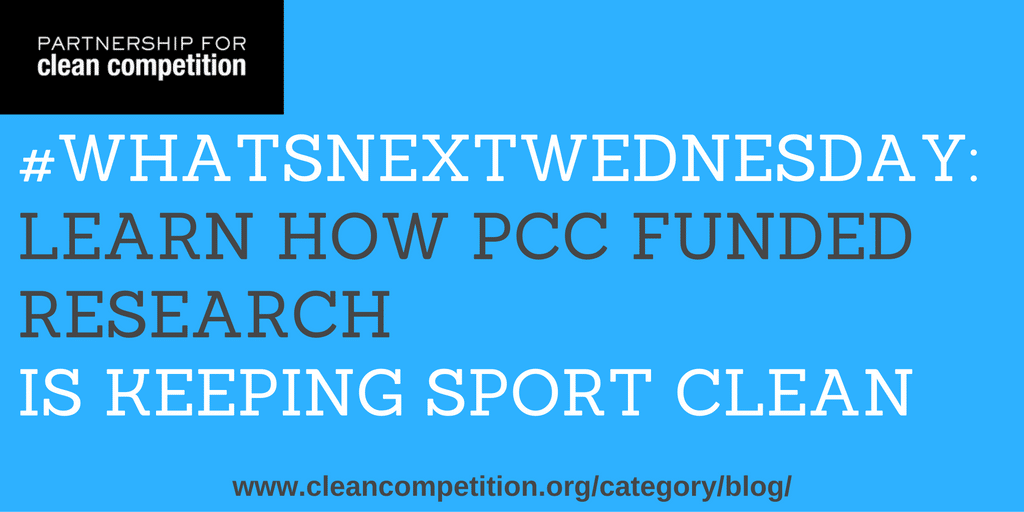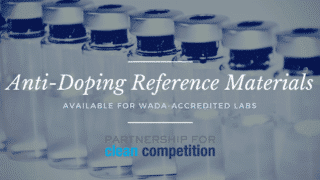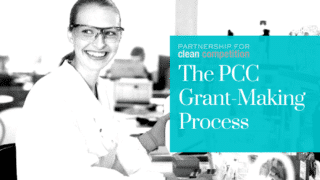Metrology, the science of measurement, is a critical component of nearly all competitive sports. Whether providing accurate measurements for a runner’s time or the distance of a quarterback’s pass, achievement in sport is driven by comparative metrics.
The measurement of performance enhancing substances marks another area in which comparability of measurement between different laboratories is vital. Anomalies in this domain have the potential to affect not only the reputations or standing of athletes, but also the public’s trust in sport.
Recognizing a critical need for independent means of quality control and method validation within laboratory doping analysis, the
Partnership for Clean Competition has funded the production of certified anti-doping reference materials for banned substance analysis. These substances will be uniquely available to WADA-accredited laboratory directors. “It’s essential that the PCC support WADA laboratory directors in their important work,” stated PCC’s Executive Director Michael Pearlmutter. “They are on the front lines of the anti-doping movement, working with prohibited substances for which precise quantification is crucial. These reference materials will play a key role in controlling and validating accurate analysis.”
The materials are intended to provide essential identity confirmation for a number of analytes and include references for IRMS analysis
of steroids, the LC-MS/MS assay for Growth Hormone biomarkers, and a serum-based single point calibrator for the IGF-1 LC-MS/MS assay. These substances were chosen based on an identified need for improved comparability and accuracy across labs, as well as traceability of analytical results for competing athletes.
The PCC hopes the materials provide additional opportunities for labs to confidently benchmark their
own methods, while contributing to high-quality and accurate measurements which are comparable across the global suite of WADA-accredited laboratories.





